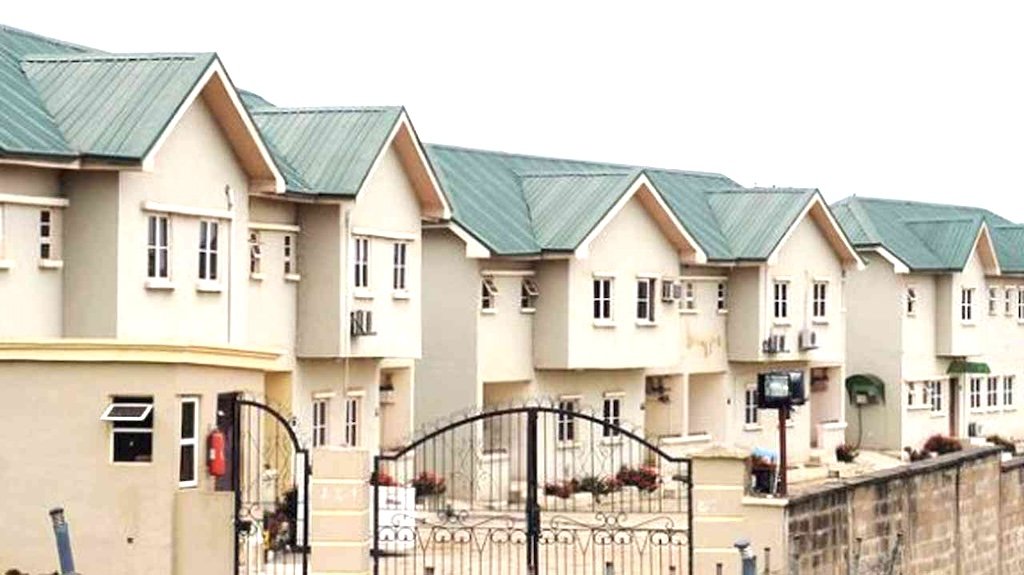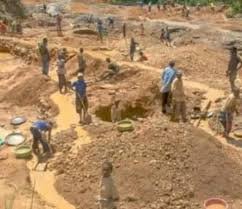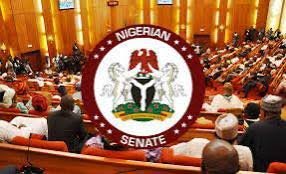
ABUJA, Nigeria – In Nigeria’s Federal Capital Territory (FCT), Abuja, where grand boulevards and gleaming estates are meant to represent national progress, a quiet emergency is unfolding. For thousands of residents, the struggle for housing has become a fight for survival. Rent in the city is rarely paid monthly; instead, tenants must produce annual or even two-year lump-sum payments that can drain life savings. Agents charge repeated inspection fees before renters see any property. “Legal fees” are demanded where no legal services are rendered. Landlords increase rent at will and refuse refunds of damage deposits—because they can. The result: a growing number of people are pushed out of formal housing and into insecure settlements on the city’s fringes, where the risk of kidnapping, robbery, and violence runs high.
In this report, Chukwu Obinna uncovers how Abuja’s rental market has moved beyond hardship to organised exploitation—fueling homelessness, insecurity, and a cycle of economic violence that is reshaping the lives of ordinary residents.
For civil servants, teachers, Keke riders, journalists, cleaners, and young professionals, shelter—one of the most basic human needs—has become a luxury item.
“Every year, you are fighting for your life just to keep a roof over your head,” says Daniel Musa, a civil servant who now commutes two hours daily from Lugbe to the city centre. “It feels like punishment.”
The Rent That Breaks the Spirit
Musa once lived in Jabi, fifteen minutes from his office. A two-bedroom apartment in the area cost between ₦1 million and ₦1.2 million. Then his landlord abruptly raised the rent to ₦2 million.
“Where am I supposed to get that kind of money when the minimum wage is ₦70,000?” Musa asks. “Even if I don’t eat for a year, I can’t pay for it.”
Unable to meet the new cost, he relocated to Lugbe, where he paid ₦700,000. The rent is lower, but the cost of fuel, insecurity on the Airport Road, endless traffic, and the strain of long commutes have consumed any savings—and eroded his quality of life.
His story is common.
Abuja now has an estimated population of more than 4 million, growing at nearly 8% annually, one of the highest urban growth rates in Africa. Estate surveyors say rents rose 40–50% in 2023–2024 alone, pushing even middle-income earners to the brink.
A basic two-bedroom flat in a modest neighbourhood now costs ₦1.2 million to ₦2.5 million—and this is before the fees.
A City That Is Quietly Expelling Its Own
Mirian, a journalist, recalls her search for a small “self-contained” room in 2023.
“I was looking for a place between ₦400,000 and ₦600,000,” she says.
Before viewing any house, she had to pay inspection fees—₦3,000 to ₦10,000 each time—plus transport. In Kubwa alone, she spent more than ₦35,000 before she found anything remotely livable.
She eventually secured a small self-contained apartment in Gwarinpa for ₦900,000—but the shock came after.
“I paid 20% of the rent as agent and legal fees,” she explains. “That was ₦180,000. But no lawyer offered me any service. No tenancy agreement was given.”
Despite spending her own money to renovate the apartment before moving in, an amount almost twice the rent — the following year the rent was raised to ₦1 million. Now, the landlord has issued an ultimatum: pay ₦1.5 million or vacate.
Mirian’s salary is under ₦200,000. “Shelter is a basic need, not a luxury,” she says. “But every month, my salary finishes before the month even starts.”
When Housing Becomes a Security Risk
For many, the only affordable homes are in unplanned settlements on the outskirts—where security presence is thin and kidnapping gangs operate freely.
“Tunde” (not his real name), a broadcast journalist, moved to Kubwa Village after marriage because he could no longer afford to live near his workplace.
One night, armed men invaded his home and abducted him and his child. His wife sold their car, land, emptied their savings, and borrowed from banks to raise the ransom.
He survived. But nothing has been the same.
Now living back in town, nearly all his earnings go to rent and basic necessities.
In Abuja today, the cost of housing is not just financial—it can determine whether someone lives or dies.
The Agent Tax — and the Illusion of Legal Protection
Even after securing a house, tenants face routine financial exploitation.
Damage deposits are demanded even when houses are completely unfurnished. Yet when tenants move out, landlords often refuse refunds—regardless of the condition of the property.
Mirian recalls her previous apartment: “I was asked to pay a ₦30,000 damage deposit. The room was empty. Everything inside was mine except the roof, doors, and windows.”
She stayed three years, renovating the room herself annually.
“When I was leaving, there was no damage. I invited the landlady to inspect. She still refused to refund me.”
Without legally binding tenancy agreements, tenants have no enforceable rights.
The Agent Monopoly: A Market Built to Exploit
According to real estate analyst Ibrahim Yusuf: “There is no regulation of agency practice in Abuja. Anyone can wake up and call themselves an agent. Because tenants are desperate, they are exploited.”
A typical house hunt can cost ₦20,000 to ₦70,000 in inspection fees alone—with no guarantee of securing a home.
Tenants pay: Agent fees, Legal fees, Damage deposits, and Annual rent in advance
Yet, none of these provide real protection.
Outdated Laws, Modern Crisis
Abuja still relies on the Recovery of Premises Act of 1945—a colonial law written before the city existed. It does not regulate rent advances, agent fees, legal fees, or allowable increases.
In 2022, the Senate passed the Advanced Rent Regulation Bill, which would enforce monthly rent payments in the FCT. But it remains unimplemented.
The result: landlords hold complete power.
Families Are Sleeping Under Bridges
As costs rise: Families occupy unfinished buildings in Galadimawa and Lokogoma, Dozens now sleep under bridges at Mabuchi, Berger, and Banex and Parents pull children out of school to redirect money to rent.
These residents are not jobless.
They are the people who keep Abuja running.
Meanwhile, Luxury Mansions Sit Empty
Drive through Asokoro, Maitama, Guzape, Apo: gleaming houses with no occupants.
More than 600 high-end units sit vacant.
Developers prefer emptiness over lowering rent.
Housing has been transformed into:
A wealth storage tool
A political asset
A status symbol
But that status is being paid for by human hardship.
What Must Change
Enforce Monthly Rent Payments
Implement the Advanced Rent Regulation Bill with clear penalties, Cap Agency and Legal Fees
Set total fees at no more than 5% of annual rent, License and Regulate Agents
Unregistered practice must attract fines and loss of license, Expand Public Housing Development Scale construction to match population growth—not symbolic pilot projects and
Protect Tenants Who Report Exploitation Housing justice requires safe channels for reporting abuse.
A City at a Crossroads
Abuja was designed to symbolize unity, security, and national pride. Today, it risks becoming a city where safety, dignity, and stability are reserved for the highest bidder.
The current crisis is not inevitable.
It is the outcome of policy neglect.
Until shelter is treated as a public good, not a commodity, Abuja will continue pushing its own residents to the margins—where many are paying for survival with their health, their education, their futures, and sometimes, their lives.




